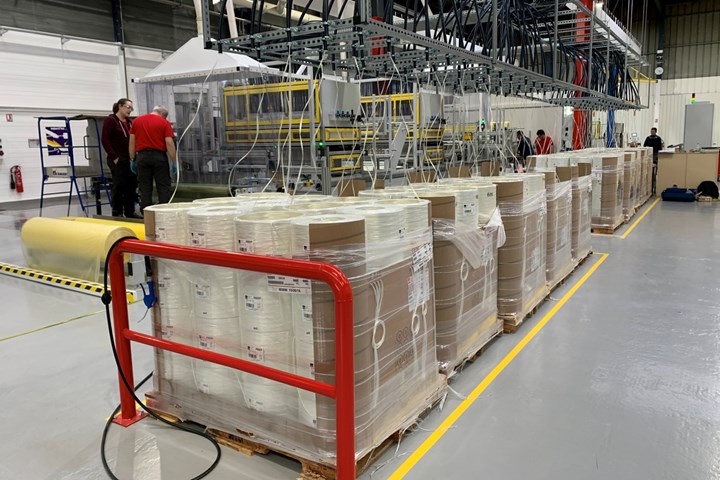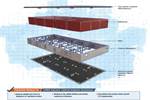Continental Structural Plastics develops composite EV battery enclosures
CSP’ lightweight composite and multi-material battery covers meet stringent static, dynamic and regulatory requirements for automakers.

Photo Credit: Continental Structural Plastics
On Sept. 24 it was reported that Teijin Group company Continental Structural Plastics (CSP Auburn Hills, Mich., U.S.) is developing composite and multi-material battery covers and full battery enclosures for electric vehicles (EV). Features including light weight, structural integrity and reduction/elimination of fire and thermal runaway were key priorities when choosing the material.
“One of the biggest challenges for European OEMs today is the fact that EV and CO2 regulations vary by country, region and even city, making it difficult to design a[n electric] vehicle that meets all appropriate requirements,” says Philippe Bonte, president, CSP Europe. “We can help them overcome this challenge by offering material solutions and enclosure designs that meet the most stringent of all requirements.”
According to CSP this was made easier as itself, Inapal Plásticos (Leça do Balio, Portugal) and Benet Automotive s.r.o. (Benet; Mlada Boleslav, Czech Republic), all under the Teijin umbrella, are said to have more than 200 years of combined carbon fiber and glass fiber composites technology expertise. This material and design experience, says CSP, has enabled the team to develop advanced battery enclosure technologies to help automakers overcome design and regulatory challenges.
“For reference, most EV battery packs weigh in excess of 454 kilograms, and need to survive a 10G load,” explains Bonte. “Many would assume that a composite enclosure would be unable to meet such stringent requirements, when in fact, the CSP team has developed a number of composite and multi-material enclosures that meet and even exceed these requirements.”
For example, the CSP team has developed a multi-material battery electric vehicle (BEV) enclosure that is said to meet the most stringent static, dynamic and regulatory requirements while reducing overall weight. Additional benefits of this enclosure include non-conductive features, ability to mold-in complex shapes, sealing features and shielding, less complexity in tooling, high strength, dimensional stability, corrosion resistance and reduced tooling cost.
Further, the glass-fiber composite materials are said to allow for greater design freedom and parts integration when compared to metallic options. Additionally, the seamless box structure is watertight and cost-competitive over an aluminum structure.
CSP says it has also developed SMC materials that offer a number of unique fire resistance capabilities, including the ability to reduce or eliminate thermal runaway, and the ability to self-extinguish. The company has been manufacturing EV battery enclosures since 2012, working in conjunction with General Motors (GM; Detroit, Mich., U.S.) on the Chevrolet Spark program. Today, CSP is in development and production of 34 battery box covers in both the U.S. and China.
Related Content
-
BMW Group to bring iX5 Hydrogen pilot fleet into service in 2023
A fleet of under 100 vehicles, featuring BMW fuel cell technology and 700-bar CFRP storage tanks, will be deployed for international demonstration and trial purposes.
-
Exel Composites supplies fiberglass profiles for Foton electric buses
Partnership with Chinese automotive manufacturer will see the implementation of pultruded profiles in various bus models, backed by weight savings, complex geometries and long life.
-
Seat frame demonstrates next-generation autocomposites design
Light weight, simplified/cost-effective manufacturing, passenger comfort and safety informed materials and process innovations and won awards for the 2022 Toyota Tundra‘s second-row seat frame.
















